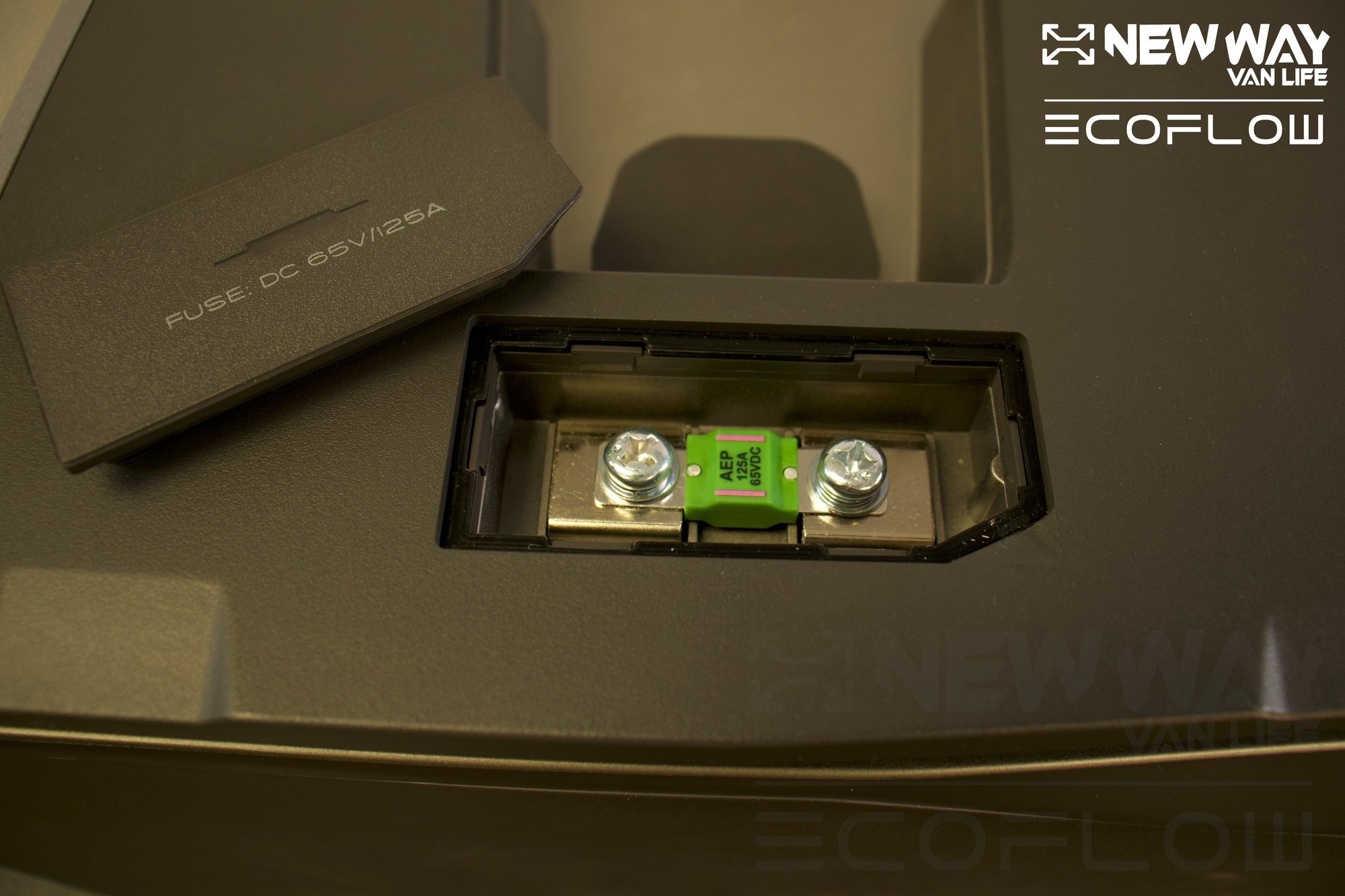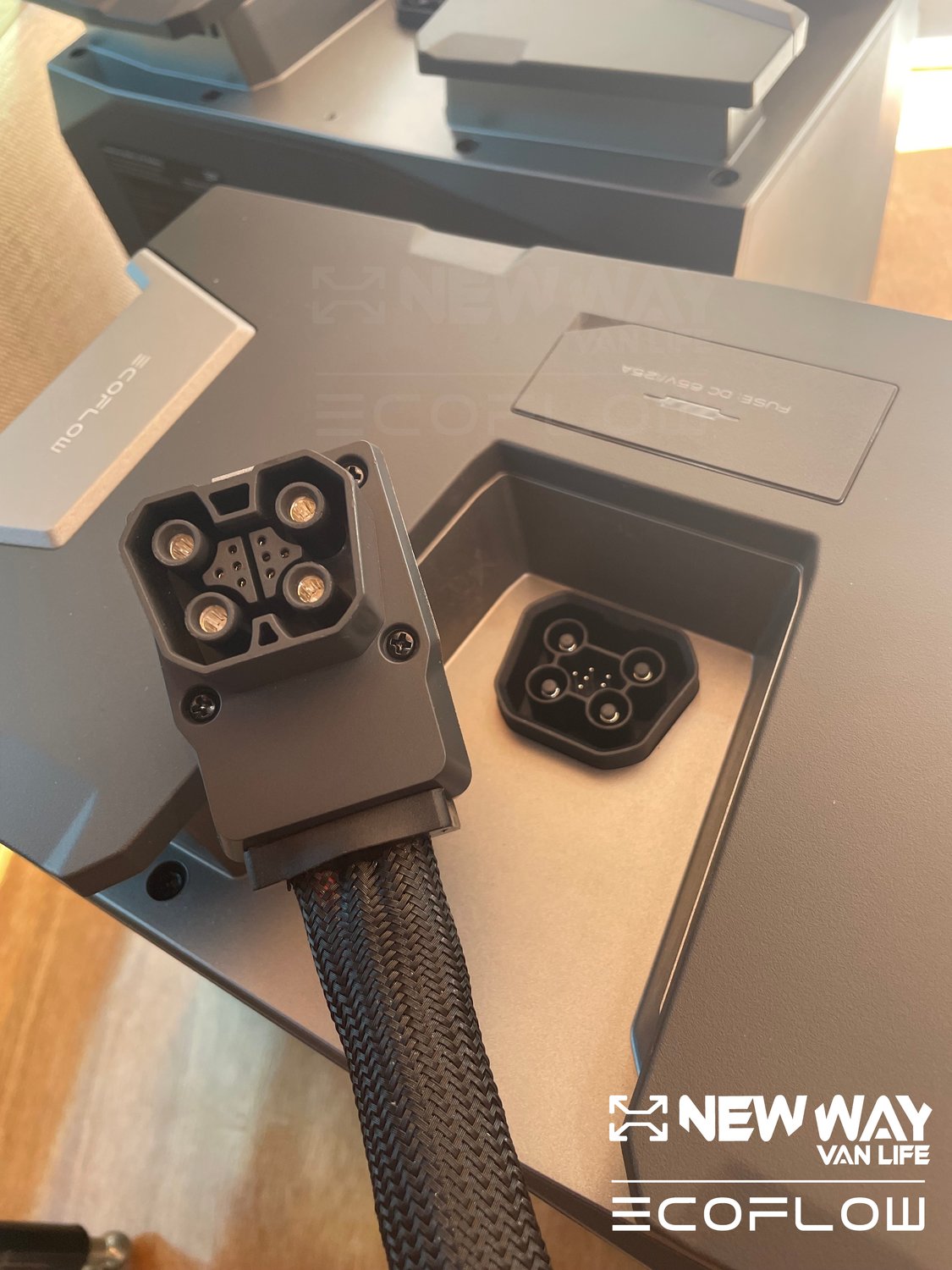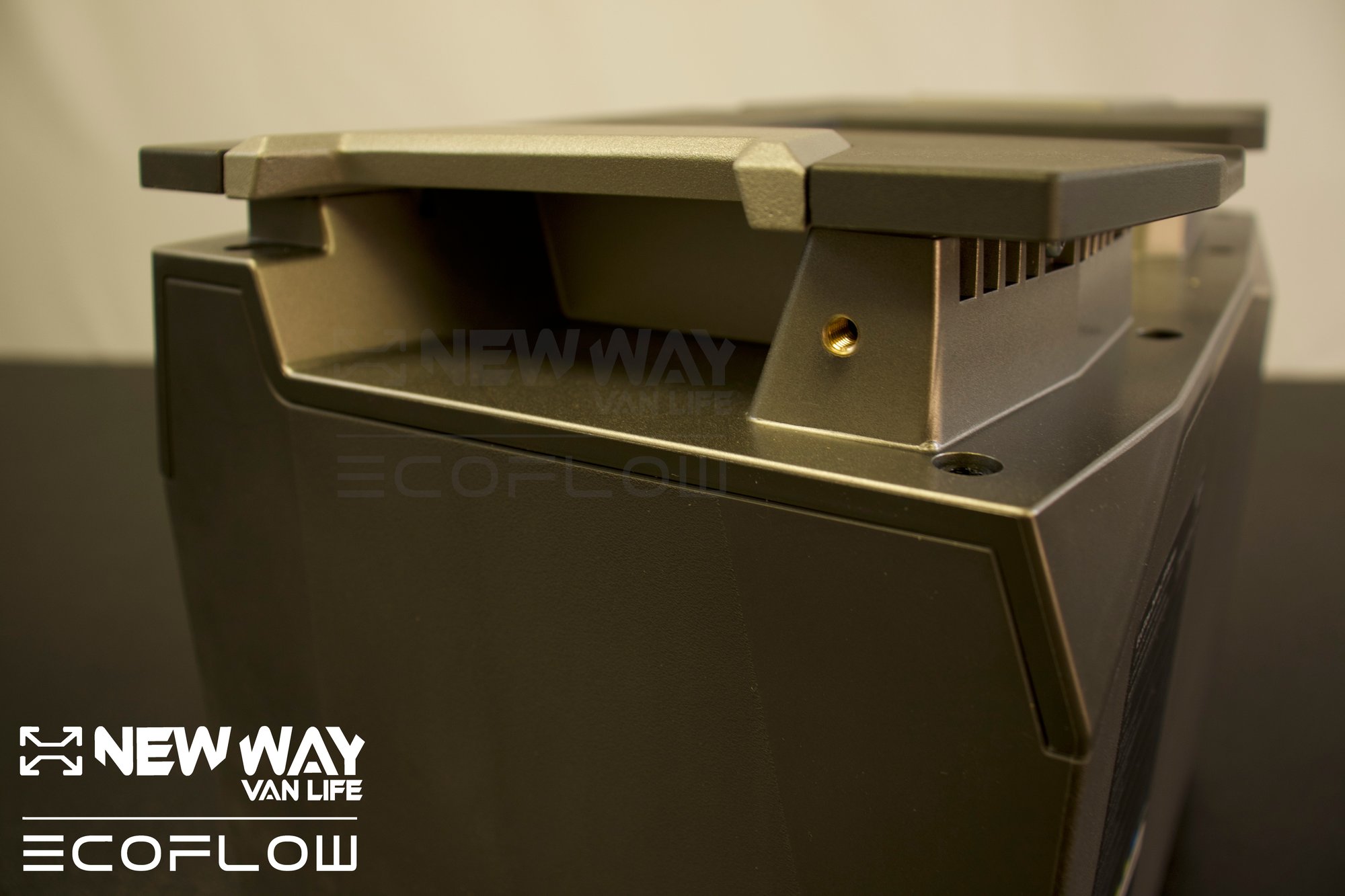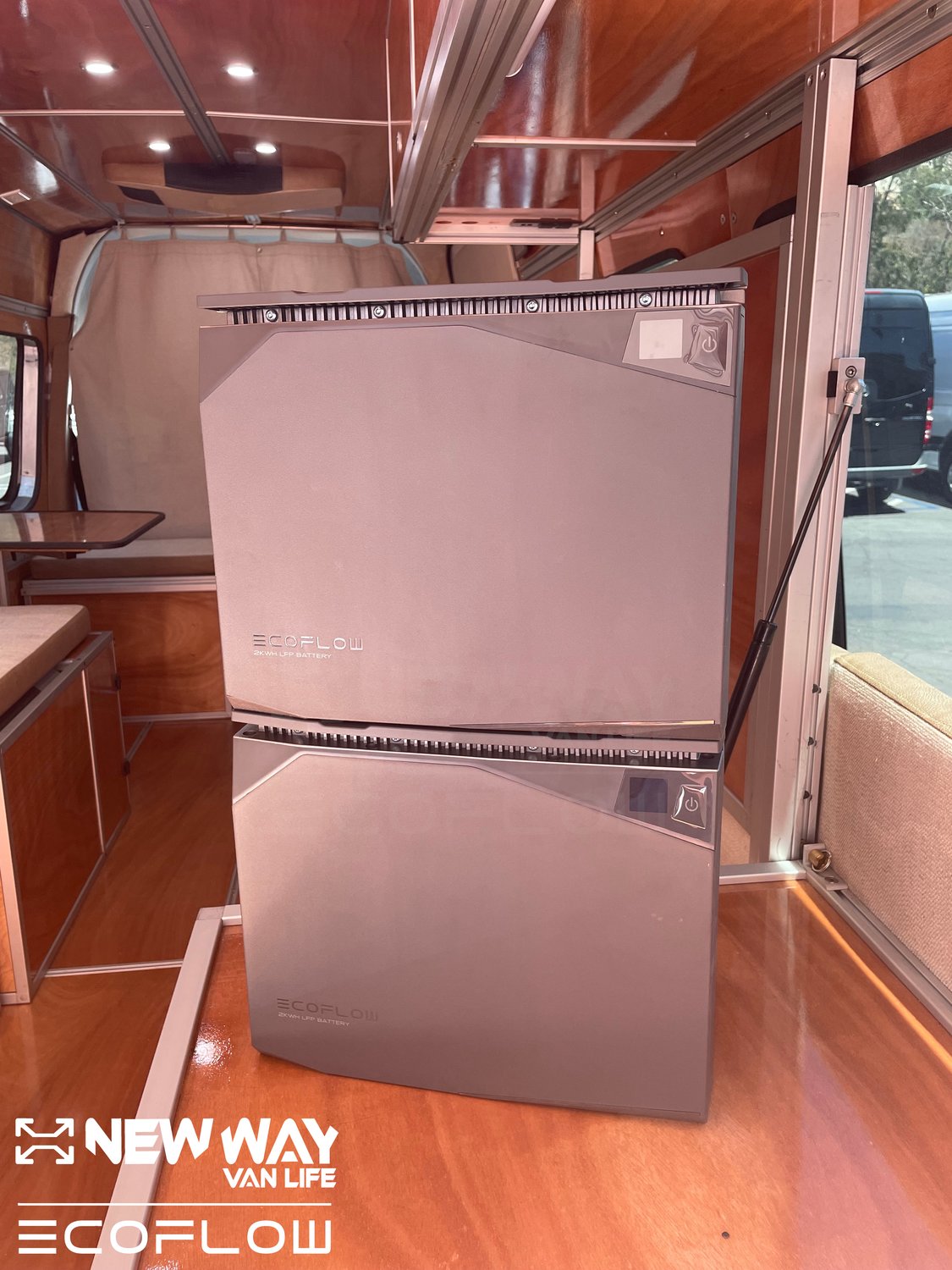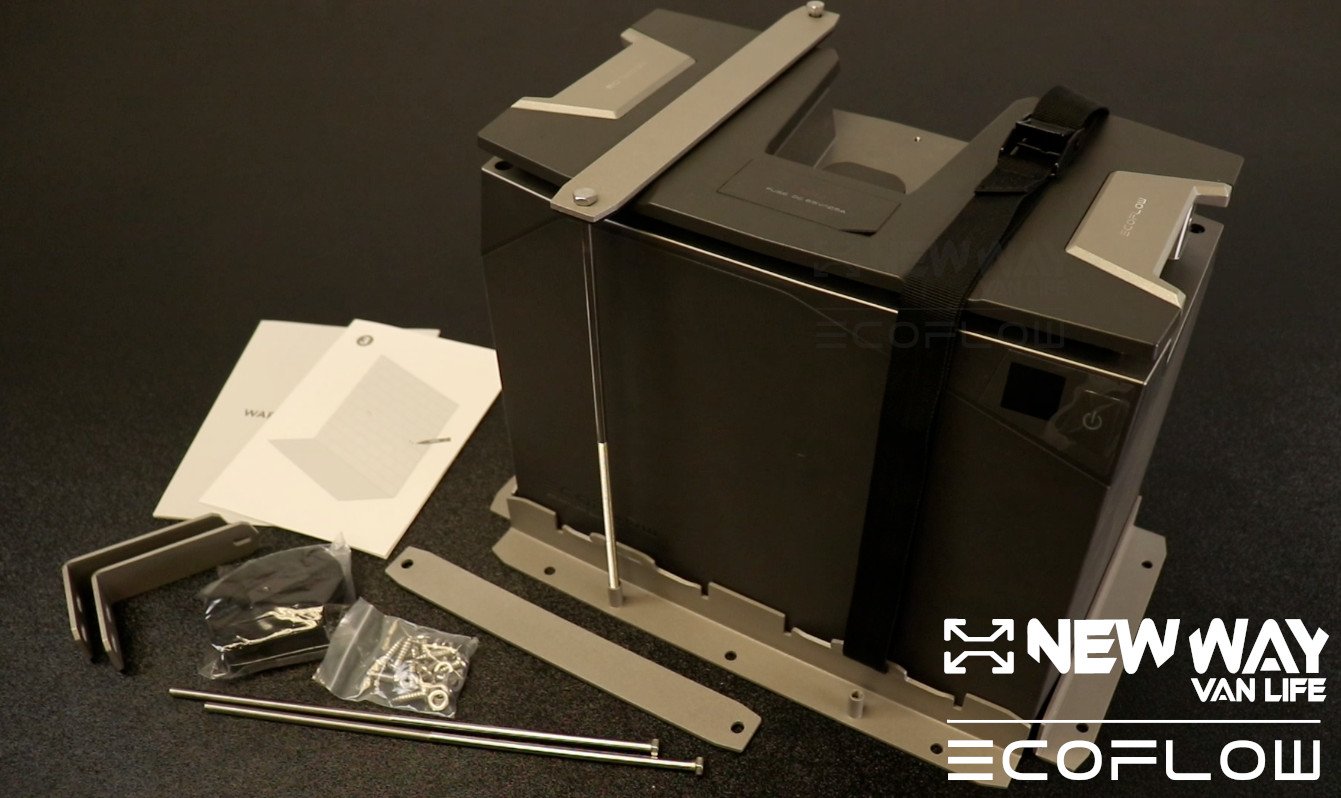Tesla Tech in your Van Conversion
EcoFlow 2kWh & 5kWh Batteries
Are Lithium Iron Phosphate (LFP) batteries the future of energy storage? Elon Musk sure seems to think so; Tesla announced that all Model Y and Model 3’s to be manufactured will all eventually have LFP batteries while nearly half of the vehicles Tesla produced in the first quarter of 2022 were manufactured with LFP batteries integrated into them (1).
The batteries in EcoFlow’s new Off-Grid Power Kits also utilize this battery chemistry, which will be available for pre-order in July. These new power systems are designed and built to provide the only solution you need for your mobile and off-grid energy budget. Learn more about EcoFlow’s new Power Kit batteries below.
Why Battery Chemistry Matters
Vehicle batteries, also known as lead-acid batteries, are made from cheap and relatively easy-to-source material allowing them to be produced in mass quantities but are not necessarily the best materials to produce the highest quality battery. LFP is a relatively new compound in the lithium-ion battery scene and is slowly taking over the market. The material was identified as usable material for batteries around 1996. LFP is finally hitting its stride in today's demand for high quality and reasonably priced batteries. One of the biggest advantages is the ability to source the material as iron is readily available and is a low-impact mining material. LFP is also safer compared to most other batteries due to being non-toxic and it does not contaminate. Lastly, the material is also able to withstand very high temperatures without it affecting the operation of the battery.
EcoFlow Batteries and the Benefits
EcoFlow has two battery options that work with their Power Kit: 2kWh and 5kWh batteries. These batteries are 48V with a Nominal Voltage of 51.2V, which is very unique. In terms of 48V systems, there are few available in the market and the reason behind this engineering decision is to create the most efficient system possible in a system as compact as possible. These batteries are capable of producing around 400Ah of 12V current, in a similar amount of space to industry-leading 12v 100Ah batteries. Lab-tested to failure these batteries are rated for a life span of over 3000 cycles, and only reach 80% capacity after 3000 cycles. Another excellent and rarely matched feature of these batteries is their automatic temperature regulating abilities.
These batteries regulate themselves to maintain an optimal temperature for peak efficiency and the longest lifespan, even to the point that the battery will not take a charge until it is at a certain operating temperature, which it will use its internal warming feature to achieve. The batteries have a built-in fuse for additional protection which is housed on the top of the unit. It has a removable access panel to shield it from any outside elements (see photo below).
The simplicity of these batteries is truly a remarkable design feature. There is only one button on the unit, the power button, which is used to turn the battery on and off. Next to the power button there is a small LED screen for viewing the battery percentage (which you can also do in the EcoFlow phone application, and on the touch screen display console). On the top of the battery there is a single input for connection from the battery to the power hub. This proprietary cable is included with the Power Kit and will be available for purchase separately. Beyond the functionality of the battery is a sleek design with very modern aesthetics. It is not obvious they are batteries by simply looking at them. Let us know what you think of their design in the comments section below!
EcoFlow’s batteries and the chemistries they use are changing the way we think about energy storage in mobile and off-grid power applications. Make sure to follow us on all of our socials @NewWayVanLife to stay updated with all of our pre-release EcoFlow Power kits content - you’re not going to want to miss out.
Sources:
(1) https://www.power-sonic.com/blog/lithium-vs-lead-acid-batteries/
